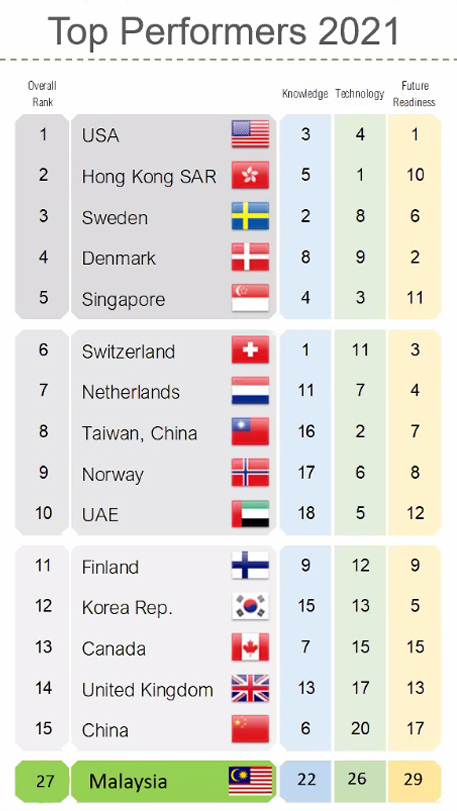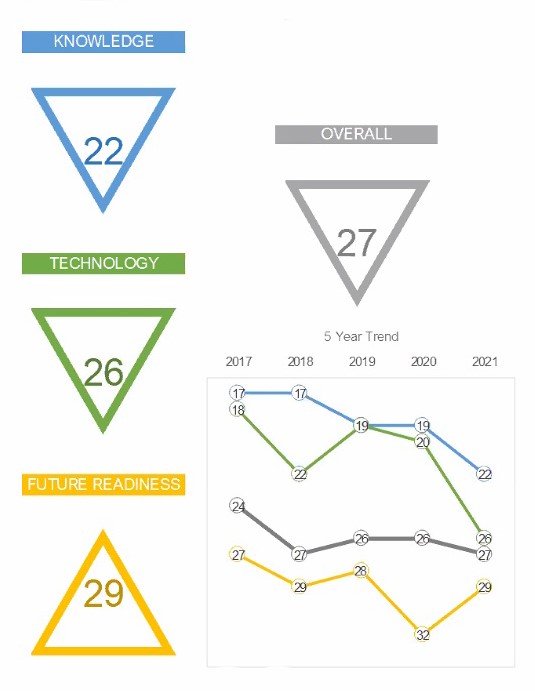Public-private partnerships are an area where Malaysia ranks well above average
To help startups struggling to cope in the COVID-19 environment, MDEC in 2020 launched its Investor Matching platform to bring investors and new companies together both for funding and to provide support such as mentoring and strategic partnerships.
In Malaysia’s favour is the strong information backbone already in place, including 640,000 kilometres of fibre optic cable, said Imri Mokhtar, Managing Director and Group CEO of Telekom Malaysia, the country’s state-owned provider of telecoms, broadband and broadcasting services.
Such achievements, with their emphasis on investment, reflect the fact that public-private partnerships are an area where Malaysia ranks well above average.
Now, however, the country and corporations such as Telekom Malaysia have to shift their focus from hardware to people, and to ensuring the inclusion of groups until now excluded from the digital economy.
“What’s lacking, and what we hope to address in the next budget, is to look at the informal and micro sectors,” said Aziz. “The question is how to bring [their digitization] up to the same level as the rest of the economy.”
This means not just doing the big projects, but working down at granular level where digitization can really make a difference for micro-entrepreneurs, especially those in rural areas and on the margins of the formal economy. “Now we have to extend to more rural areas to bridge the country’s digital and economic divides,” said Mokhtar.
COVID-19 has played a major role in reshaping views, with the last two years seeing many people embrace new ways of working – first and foremost at small and medium-sized enterprises (SMEs), said Mokhtar.
“This has been a golden window [for digitization] to take off with them, especially as it’s been supported by the government with its SME digitization fund,” said Mokhtar.
The key, suggested Bris, lies with the government. “Those countries that excel in transforming their country digitally have done so with a top-down approach.”
“In the United States, as we know, most digital initiatives were originally funded either by the military or the government. Now, that’s also the case in China, where the digital transformation has huge support from the central government,” said Bris.
“Any successful digital transformation has to start with an institutional approach, and the key to that typically is political leadership. Very often you see in countries where digital transformation has become a reality, it is a result of a proactive leadership – as we’ve seen in Israel, Estonia and Argentina.
Another area of government support should be making sure Malaysia’s talent advantage is maintained. “Attracting and retaining the talent is going to be paramount,” said Bris.
Part of that will call for further investment in training. But perhaps of more importance will be thinking big. “Ambitious plans can help attract and excite people,” said Aziz. “We have a long inventory of IT companies. We’re gaining more skills. What we need is a catalytic project.”
With such a framework in place, the market can take over. Private companies can innovate and address the wishes of people to become more digital across all aspects of their life.
“Covid-19 opened up opportunities for digital innovation. Now we have to come up with things that attract people and companies to come here,” said Aziz.
“I think we’re at the brink of a really rapid shift to embracing a much more digital way of life,” said Mokhtar. “This is not just about technology. It connects to the future readiness of the country. We’ve seen [wanting] that accelerate over the past one-and-a-half years as the country’s trajectory moves to recovery and growth.”














